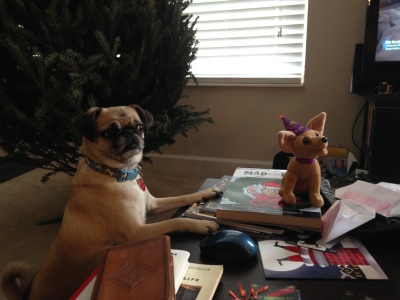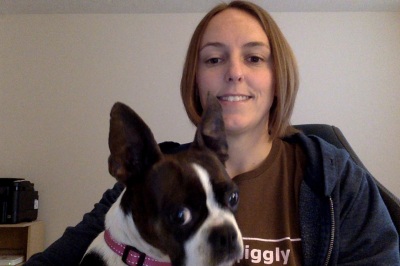Permafree is a common term in the indie author world. Many authors will vouch for the strategy. The strategy is to set the first book in a series free (ebook formats only of course) to encourage new readers to try the book. The theory is the reader will like the book and be willing to pay for the rest of the series. Many independent authors have had tremendous success with this strategy. However, most of these authors are also writing adult or young adult fiction, not kids' books. The children's book market is a bit different and its transition to ebooks has been much slower. But there is evidence that more and more kids are reading on iPads and Kindles. With all this is mind, I decided to try permafree for my children's chapter book series. I had three books out, and I wanted to try something to spur some sales.
In the beginning of November, I set the first book in The Adventures of Zelda series free in ebook format on all platforms. I spread the word via social media, and I also had my friend Chubbs the Wampug tell her followers. (Chubbs is a pug celebrity) Since then, I haven't done any other advertising.
After almost three months of permafree, The Adventures of Zelda: A Pug Tale hovers around number 5,000 in the Kindle Free Charts with some spikes. Those spikes are usually around 150 free downloads in one day. Otherwise, my downloads range from 10-50 on a typical day in the Amazon Kindle Store.
In December, I saw record number of paperback sales for the Zelda series as a whole, selling over 100 books. November was strong for paperback sales as well. To date in January, ebook sales for the second and third book of the Zelda sales have risen to their best month with a week left still in the month. I'm selling a few copies of the second and third book each day in the Kindle store.
The other platforms are not doing much for me. Apple's iBooks is the only store that moves copies. Usually, I have about 5 free downloads a day of the first Zelda book with a few sales here and there for the second and third Zelda books. Nook, Kobo, Smashwords, etc aren't moving any books most days.
It's hard to know exactly what spurned my jump in sales, but I'm sure permafree was a big component. Going permafree made Zelda start appearing in also boughts on Amazon all over the place. It kept me at the top of the free kids' pet books charts. I'm happy with the results so far.
I realize my numbers aren't huge. I realize I'm not making thousands of dollars, but in a very tough children's ebook market, I'm happy with the growth. I'm happy that kids and parents are enjoying the series and continuing with it past book one. I'm also happy with the results because I haven't paid a dime for any advertising yet. That's the next step. And writing book four!


